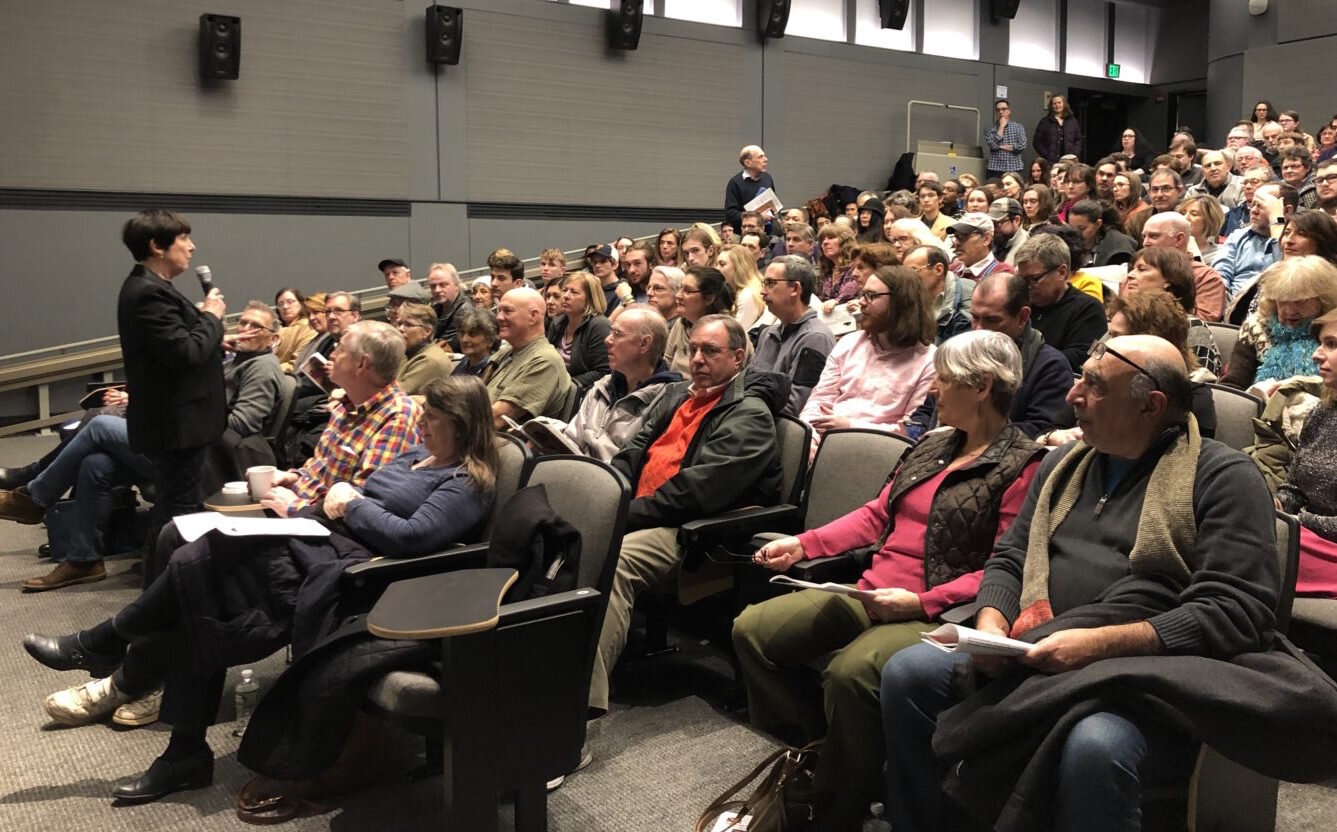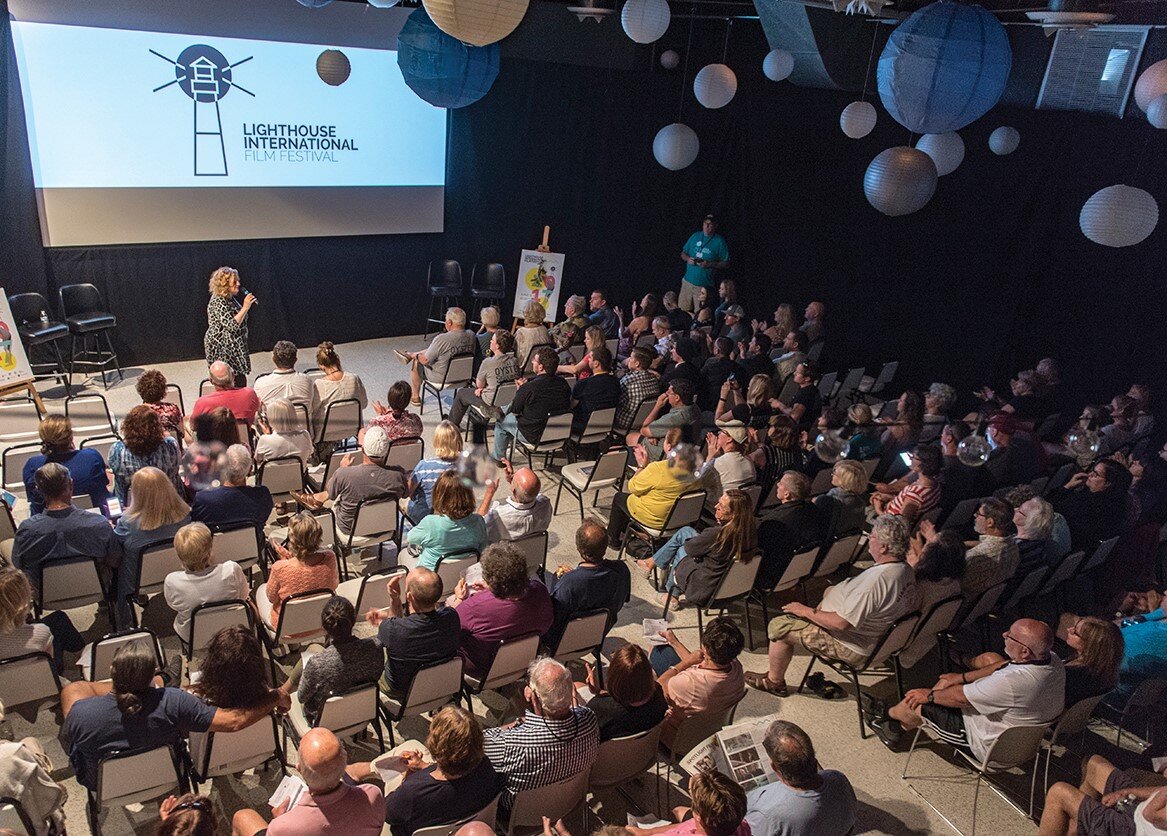How Three New Jersey Film Festivals Are Flipping the Script
This has been a profoundly challenging time for all arts organizations, but one silver lining is the online culture that has emerged to keep everyone connected through the arts in new and powerful ways.
We recently spoke with leaders from three New Jersey film festivals about how they’ve been navigating the coronavirus pandemic: Lighthouse International Film Festival’s Christine Rooney, Montclair Film’s Tom Hall, and Black Maria Film Festival’s Jane Steuerwald. Each organization has its own approach to maintaining the communal spirit of film festivals at a time when we’re all sheltering in place to stop the spread of COVID-19.
Jersey Arts: We are well over a month into the “stay home” phase of the coronavirus pandemic. Could you each talk about how your organization has been affected, and what you’re doing to stay connected to your audiences?
Tom Hall: We were originally scheduled to open the ninth annual Montclair Film Festival this Friday. So, it's been a very stressful time in a lot of ways, but we've kept our staff together and we've continued to work on figuring out how to keep all of our programs moving forward. And we're looking to reschedule the Montclair Film Festival as soon as we get the word that it's safe for everyone to get back together.
Christine Rooney: We haven’t made an announcement yet. As of right now, Lighthouse International Film Festival is still on for June. We are still weighing all of the factors. We're trying to stay nimble, and we remain committed to giving filmmakers from around the world an opportunity to tell their stories, and for our audience to be enlightened, inspired, and entertained by independent films.
Jane Steuerwald: Our model at Black Maria Film Festival is very different than other film festivals. We bring films to the people as opposed to having people congregate in one place to see a group of films. Our mission is to reach underserved communities – communities that wouldn’t otherwise have the opportunity to see this kind of work. We’re really excited and proud to be presenting our films online for free for however long the pandemic lasts. So, we’re looking at this as a moment for us to give back.
Montclair Film Festival
JA: As arts leaders, I'm sure this crisis has pushed you all to have conversations you never thought you would have. What are some of the innovations coming out of the film community for working around COVID-19?
CR: I think all of the film festivals have done a valiant job at trying to navigate this time. As I said, we haven’t decided to call it off yet, but we've already tested the waters with a panel discussion on Zoom. We’re also posting daily film recommendations from our staff on social media - independent films, films you may have missed, films that are now being released that probably weren't going to be released before.
TH: I think we're structured pretty well to be able to endure a time without revenue coming in, but our real focus has been on keeping our patrons engaged with us even though we can't be together physically. So, we're developing a few more programs.
The Discover Together film program offers a daily film recommendation. I do an online introduction for our members, and then we have conversations in the comments. We've been trying to reflect diverse programs – films by women, people of color, documentaries, fiction, classic films – just really mix it up. It's a good time for it, obviously, because everybody's home and streaming must be going through the roof right now. We've had a lot of positive feedback, and people are renewing their memberships with us. So, that show of support has been really great.
We're also looking to launch a Story Slam online where people can do short storytelling live on Facebook. And, of course, this Friday is what would have been the opening night of Montclair Film Festival 2020. So, we're going to plan a special event online for this Friday.
Also, our online education programs keep rolling on. We're doing online screenwriting and visual effects classes online. We also have a couple of film clubs for young people called Montclair Film and Friends that are still convening over Zoom and talking about movies together. So, we've been pretty busy all things considered.
Black Maria Film Festival
CV: This has been a chaotic time for everybody, but the arts sector has been hit particularly hard. What’s most important for your audiences to know right now?
JS: That we are all in it together. And that we care and appreciate so much how loyal and supportive our audiences and patrons have been for 39 years. And it's a two-way street. You have to be able to give back and say thanks to those people who have helped all along the way. I want them to know that we're grateful. And that we support film. And that we support art. And that we support the filmmakers. And the students of film.
TH: One thing that is vitally important to us is that, right now, we don't talk about money. What we are talking about is community and coming together around film. We want to see support go to frontline heroes and providers, and we're not even considering doing fundraising during this period. What we do sort of pales in comparison with the hard work that's being done to keep people alive, and to figure out how to stop the pandemic. I do think that we have done a pretty good job of keeping it about community, conversation, coming together around the art of film, and finding a way to be together. We want people gathering around a work of art and having a discussion about it, connecting with one another, and connecting with the artists.
Lighthouse International Film Festival
JA: As you're all well aware, the arts community has really been a big presence online. Despite all the scary stuff going on in the world right now, the arts community has created something new and interesting, and has created all these new kinds of connections that weren't there before. And you are all a part of that.
CR: I know what you mean. And I think it’s because art speaks to our heart. It speaks to our soul. Art connects us on so many levels. Even if you're alone, it connects you with other people. And, in other times of crisis, people have risked their life to preserve the arts - because it's part of who we are. So, I think that's a big part of it, too. What is sustaining most people through this? It's movies. It's music. It's art. It's poetry. It's books. That's what's carrying us through this time. So, supporting the arts is important in good times, but it's essential in difficult times.
TH: I think there's two things there. One is that it's a new form of intimacy. One of the nice things about movies in general, I think, as opposed to live theatre – which I love as well – is the art of the close up and getting you into the face of the actors, and giving you a much more subtle presentation of drama and insight into character and empathy. I think empathy, especially in movies, is a very, very powerful tool. That's why I do what I do. I really believe in creating empathetic relationships between audiences and movies. And that really is what drives me on a personal level.
And I think the arts provide empathy in a way that you can't do through the news, and you can't do through politics, or any other way. It heightens our emotional response to one another, and the humanity that's in the work, and it makes us feel comforted because we see ourselves in the lives of others – in the experiences of other people.
I've been spending a lot of time online listening to live music from people's homes, where everything's stripped away – you're just in someone's living room with them, and it's all been pared down, and it just feels much more human and intimate. And so many people are doing poetry online. The arts are really built around building that empathetic experience, and people need that connection now. And film does a really great job of that.






